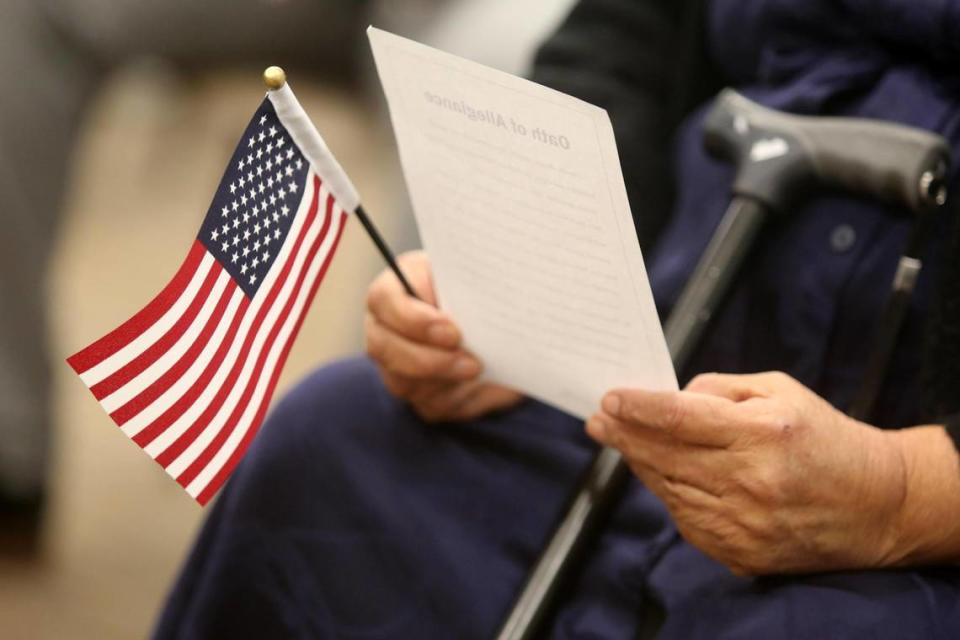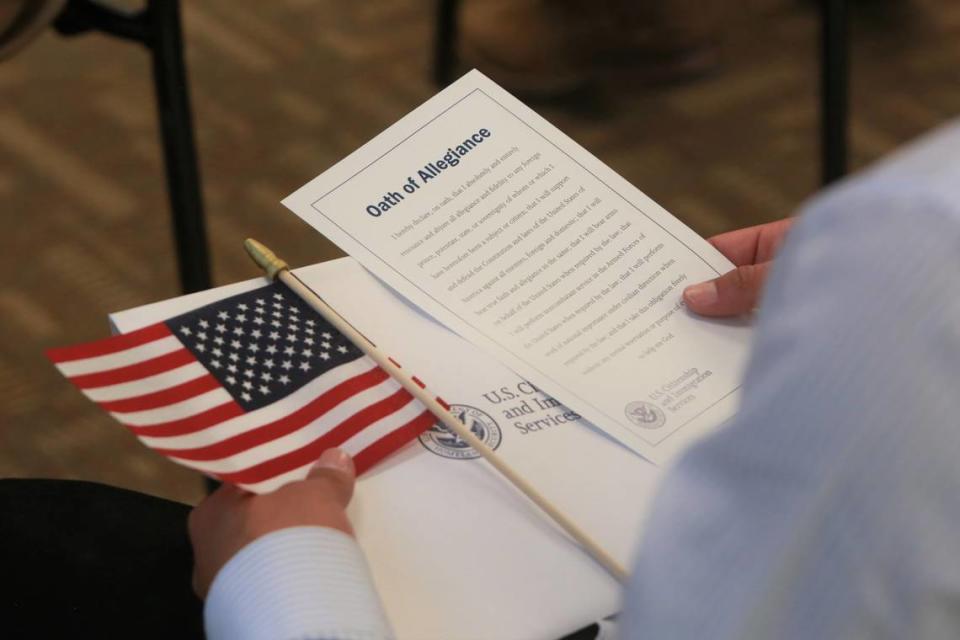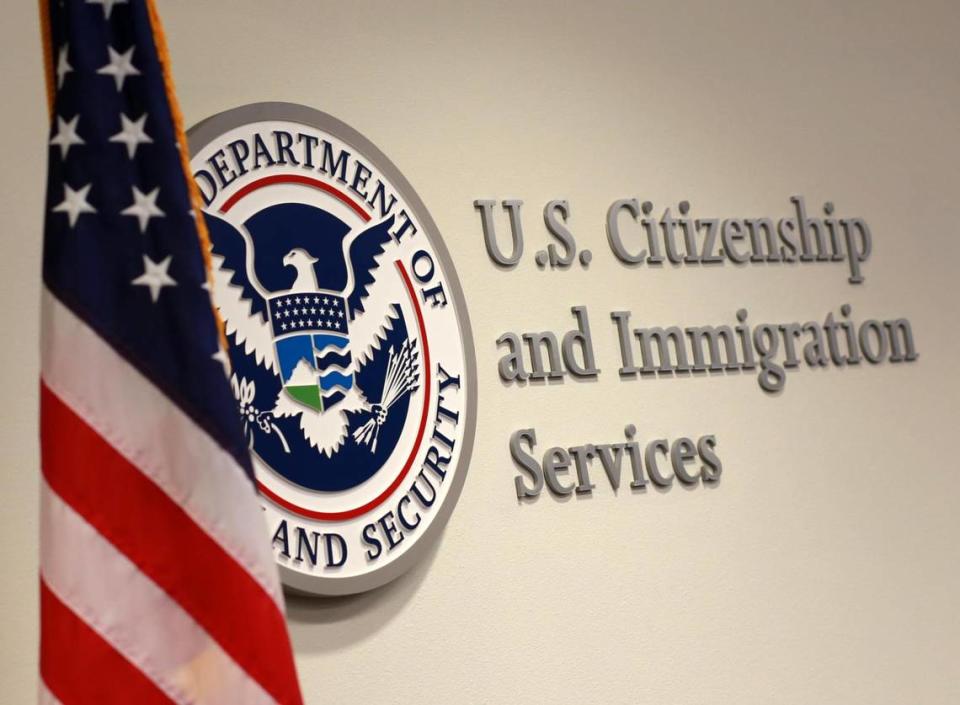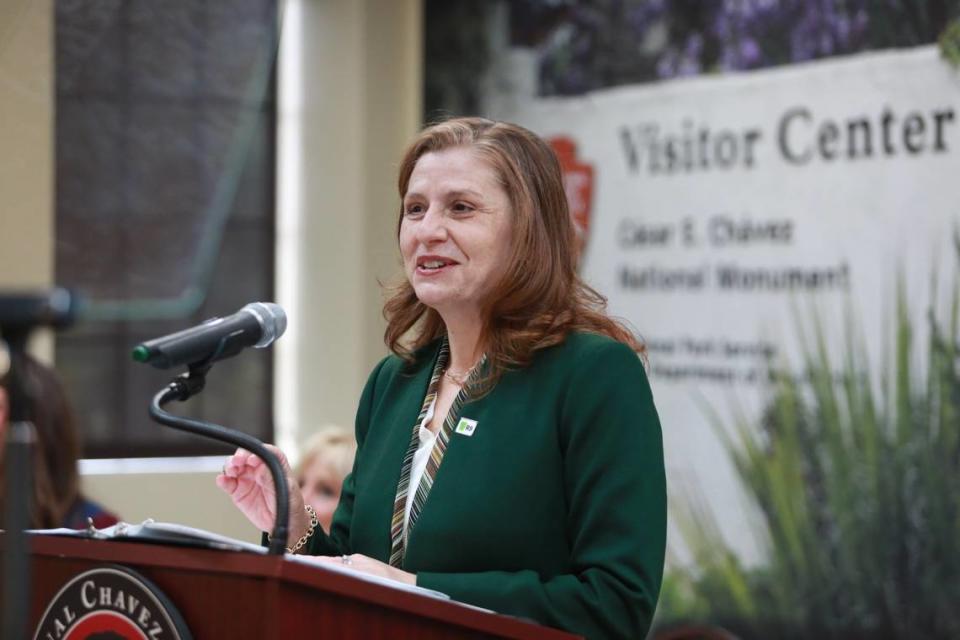New citizenship fees go into effect on April 1. How the change will affect you.
In recent weeks, the Central Valley Immigrant Integration Collaborative, which helps permanent residents in the Valley seeking naturalization, has been receiving more calls than normal from residents who are interested in citizenship.
The reason is that on April 1, the fee to become a U.S. citizen will increase; but only if the application is submitted in paper format. If the application is online the cost is less.
Eleazar Valdez, outreach and workshops coordinator for CVIIC, said several people visited his Fresno office at the beginning of February to submit the citizenship application because “they did not want to pay the new fee they saw in the news”.
“The increase for the citizens themselves is going to be about a five to 10 percent increase,” said Valdez. “Right now it is $725 (online or paper) for the person to become a citizen. Starting in April the fee will rise to $760 (paper).”
“But if the person wants to do it online, it will go down, it will be $710,” said Valdez,
Valdez said that come April people should apply for citizenship online because they will save $50 from the paper cost.

The United States Citizenship and Immigration Services (USCIS) on Jan. 30 issued the new final fee rule that goes into effect in April to adjust certain immigration and naturalization application fees.
The new rule includes reduced fee options for naturalization applicants and people who apply online.
For forms for which USCIS offers online filing, there will be a standard $50 discount for those who choose to file online instead of in paper format.
Valdez doesn’t know why USCIS has reduced fees for online filers, but speculates that USCIS may want to eliminate paper applications and have all applications filed online.
Final fee rule
According to the USCIS office, approximately 96% of their funds come from filing fees. The last time USCIS raised fees was more than seven years ago on Dec. 23, 2016. Only 4% of the funding comes from Congress.
“For the first time in more than seven years, USCIS is updating our rates to better meet the needs of our agency to provide timely decisions to those we serve,” said USCIS director Ur M. Jaddou in a statement.

Under the rule, most rates have increased, some have decreased, and certain forms have new rates.
Since Fresno-based CVIIC was formed, one of the organization’s jobs has been to update the community on immigration changes, holding workshops throughout the Valley from Kern County to Stanislaus. The group focuses on rural communities and people who have been victims relying on notaries or friends during the immigration process, said Valdez.
The need is so great that CVIIC took a more active role from providing information to working with collaborating with other groups and lawyers to help with DACA renewals, applications for permanent residence cards (known as MICA), and citizenship assessments to determine eligibility.
Even with the change, Valdez said people who receive Medi-Cal or food stamps could still qualify so they don’t have to pay the new fee, adding that 90% of the people CVIIC works with are low-income and receive Medi-Cal or food stamps.
“These people qualify for almost 100% no (citizenship fee) or partial pay,” Valdez said. Ten percent of citizenship applicants earn enough to pay, he said.

Another change includes expanding eligibility for reduced-fee naturalization applications ($380), available to people who can demonstrate household income between 150% and 400% of the federal poverty guidelines.
Currently, the reduced rate is $405, Valdez said.
If a person does not qualify for fee forgiveness, Valdez said that with the new rule, more people will be able to qualify for $25 reduction.
“Instead of paying $405, you would pay $380,” Valdez said.
Eleazar said naturalization applicants should note that if they want to vote in the November general election, it takes between four and eight months to complete the process and be eligible to register to vote.
“So people who are interested have to apply now to be ready to vote in November,” said Valdez.

According to Claire Nicholson, USCIS public affairs officer, more than 10,000 naturalization ceremonies are held annually in 88 field offices across the country.
Nicholson said that in fiscal year 2022, the U.S. welcomed 974,000 new U.S. citizens, the largest number in nearly 15 years.
Those from México represented 13.3% of those naturalized nationally, although they tend to be about half of the new U.S. citizens in the Fresno area. They are followed by India (6.8%), the Philippines (5.5%), Cuba (4.8%) and the Dominican Republic (3.6%).
The Fresno office naturalized 14,138 applicants in 2022.
According to the USCIS office, a comprehensive biennial fee review was conducted and determined that current fees do not recover the full cost of providing adjudication and naturalization services.
The Department of Homeland Security adjusted the fee schedule to fully recover costs and maintain adequate service.

The final fee rule would generate an additional average of $1.14 billion annually.
“Due to years of underfunding, the USCIS workforce made great strides in customer service, reducing backlogs, implementing new processes and programs, and upholding fairness, integrity, and respect for all of us who serve,” Jaddou said.
You can visit the USCIS FAQ page on their website to see a complete list of the revised forms that will go into effect on April 1, along with the new fees.



